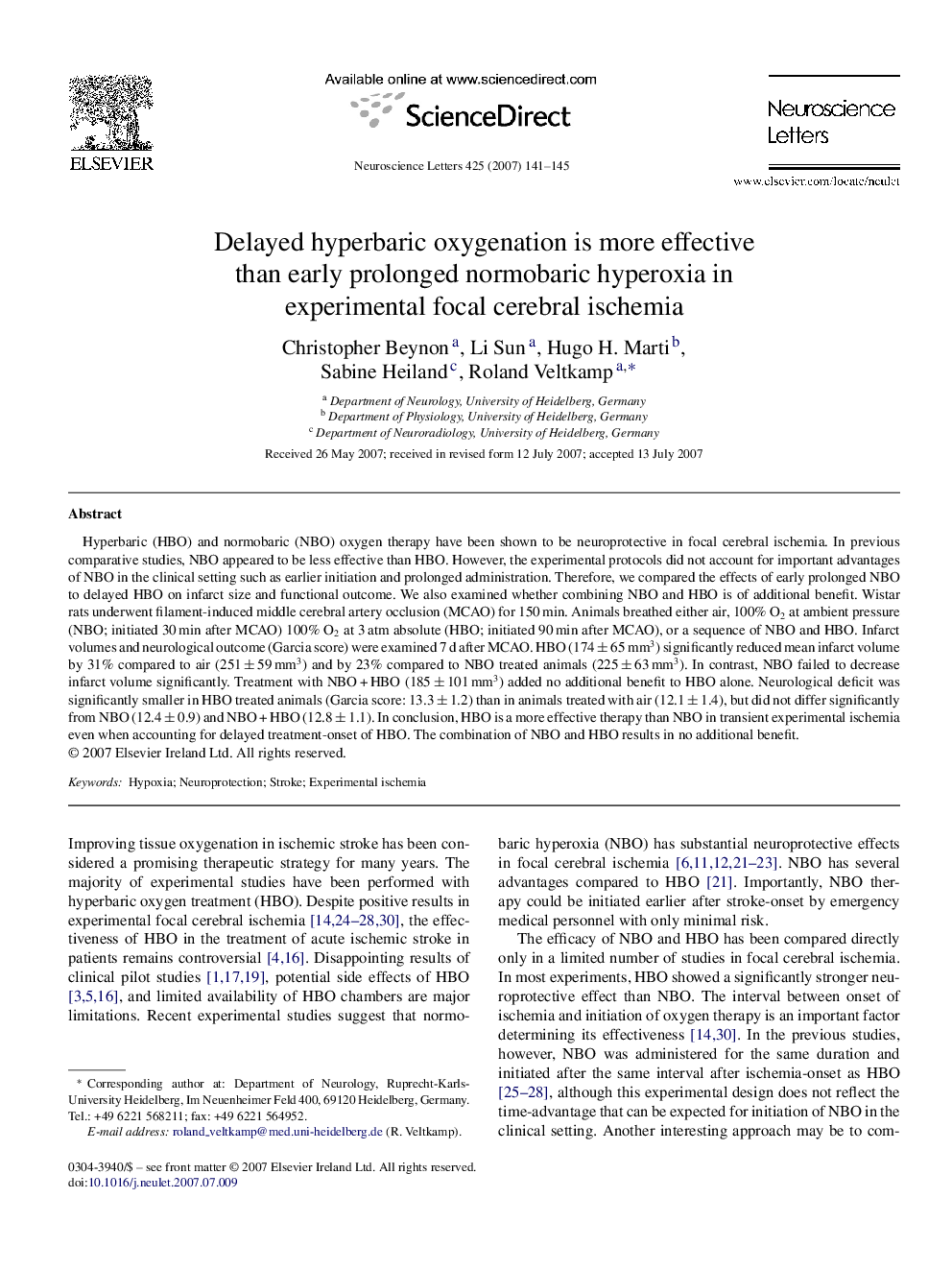| Article ID | Journal | Published Year | Pages | File Type |
|---|---|---|---|---|
| 4349136 | Neuroscience Letters | 2007 | 5 Pages |
Abstract
Hyperbaric (HBO) and normobaric (NBO) oxygen therapy have been shown to be neuroprotective in focal cerebral ischemia. In previous comparative studies, NBO appeared to be less effective than HBO. However, the experimental protocols did not account for important advantages of NBO in the clinical setting such as earlier initiation and prolonged administration. Therefore, we compared the effects of early prolonged NBO to delayed HBO on infarct size and functional outcome. We also examined whether combining NBO and HBO is of additional benefit. Wistar rats underwent filament-induced middle cerebral artery occlusion (MCAO) for 150 min. Animals breathed either air, 100% O2 at ambient pressure (NBO; initiated 30 min after MCAO) 100% O2 at 3 atm absolute (HBO; initiated 90 min after MCAO), or a sequence of NBO and HBO. Infarct volumes and neurological outcome (Garcia score) were examined 7 d after MCAO. HBO (174 ± 65 mm3) significantly reduced mean infarct volume by 31% compared to air (251 ± 59 mm3) and by 23% compared to NBO treated animals (225 ± 63 mm3). In contrast, NBO failed to decrease infarct volume significantly. Treatment with NBO + HBO (185 ± 101 mm3) added no additional benefit to HBO alone. Neurological deficit was significantly smaller in HBO treated animals (Garcia score: 13.3 ± 1.2) than in animals treated with air (12.1 ± 1.4), but did not differ significantly from NBO (12.4 ± 0.9) and NBO + HBO (12.8 ± 1.1). In conclusion, HBO is a more effective therapy than NBO in transient experimental ischemia even when accounting for delayed treatment-onset of HBO. The combination of NBO and HBO results in no additional benefit.
Related Topics
Life Sciences
Neuroscience
Neuroscience (General)
Authors
Christopher Beynon, Li Sun, Hugo H. Marti, Sabine Heiland, Roland Veltkamp,
